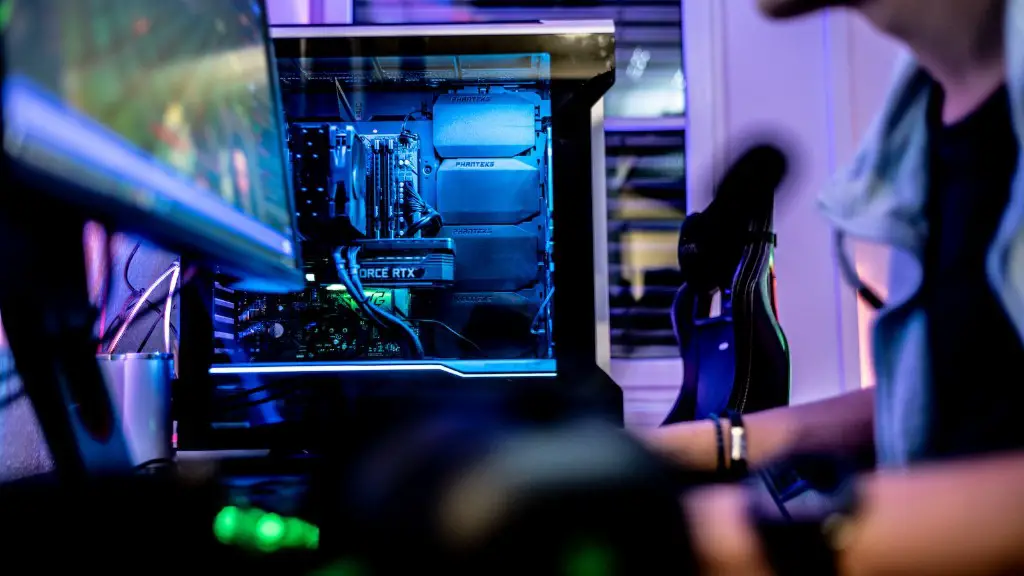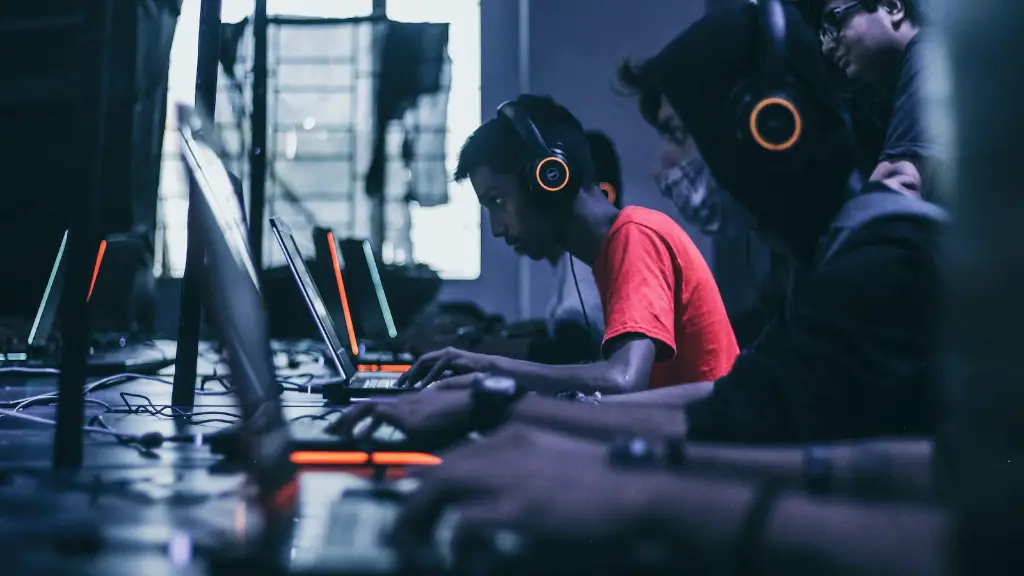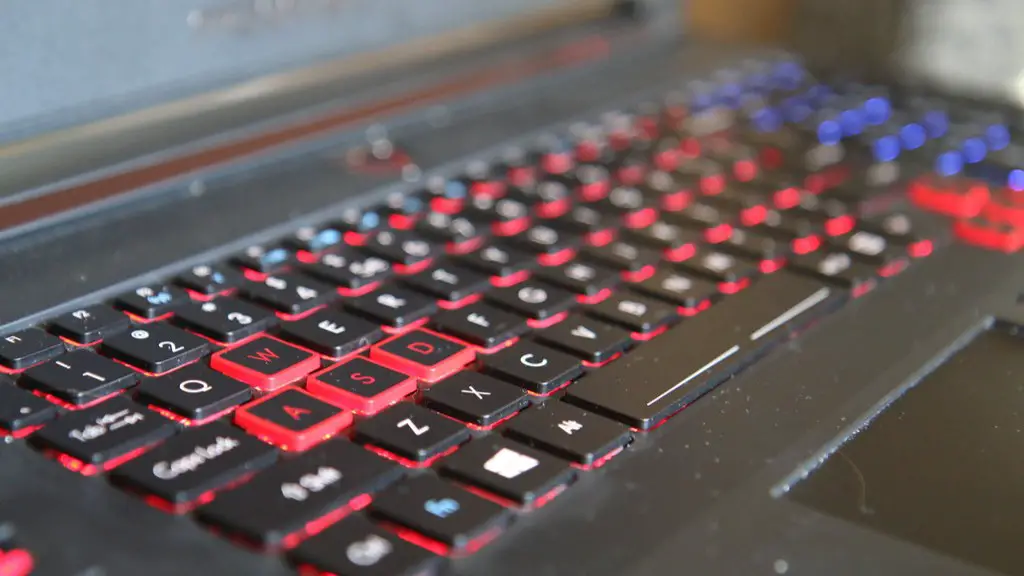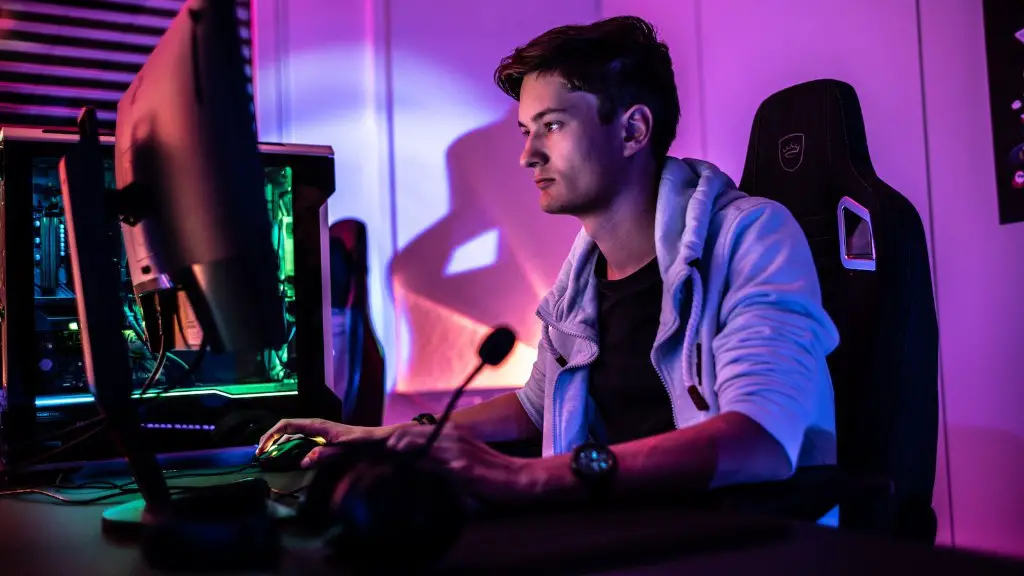Building a custom gaming PC takes a lot of planning and careful consideration of the parts and components. To build an optimal gaming system, one should consider and plan out the processor, motherboard, RAM, cooling system, storage, graphics cards, and power supply. This article will cover what all is needed for a gaming PC.
The core of any gaming PC is the processor, which is responsible for managing the data flow. Processors come in a range of speeds and have different amounts of cache and cores, which can affect performance. In general, a high-end gaming system needs at least a 6-core processor with a clock speed of at least 4 GHz. The motherboard is the backbone of the gaming system and it needs to have the proper CPU socket, RAM slots, and other features.
For high-end gaming, ample RAM is necessary to ensure responsive gaming. DDR4 or DDR3 RAM is the recommended type, with a minimum of 8GB in dual-channel configuration. This can be increased to 16GB or 32GB depending on the user’s budget and performance needs. Gaming systems tend to run hot, and it is important to have a good cooling system to keep all components running at the optimal temperature. Air cooling or liquid cooling can be used, although liquid cooling generally provides better thermal performance.
Gaming PCs require plenty of storage to handle all the games, applications, and multimedia. If a large library of games is desired, then a solid-state drive(SSD) is the way to go. SSDs will provide better performance and faster boot times compared to traditional HDDs. Traditional HDDs are still good for storage of movies and backups. Video cards, or GPUs, provide the visual display and performance of the gaming system. The number of GPUs can depend on the budget, but typically one or two powerful GPUs should provide more than enough performance.
Finally, the power supply unit is required to provide power to all the components of the system. The wattage of the PSU should match with the chosen components, usually a 500-750 Watt power supply will suffice for most gaming systems. After the components are chosen and installed, a compatible operating system needs to be installed for the system to run.
Graphics Cards
Graphics cards (or GPUs) are the hardware responsible for providing rich and realistic visuals, as well as fine-tuned performance in games. When it comes to choosing graphics cards for gaming, the main factor to consider is the graphics processing unit(GPU) model, memory size, and clock speeds. For higher performance, multiple graphics cards can be used in an SLI or CrossFire configuration.
GPU models like Nvidia RTX or AMD RX are the pinnacle of GPU performance, but they come with considerable price tags. Mid-range performance cards like the Nvidia GTX or AMD RX 5700/5700XT provide good performance at a better price point. Budget cards like the Nvidia GTX 1050 or AMD RX 560 are well suited for entry-level gaming. It is also important to consider the memory size, with 8GB being the minimum requirement for modern gaming.
Clock speeds are also important, as the clock rate of the GPU determines how many instructions can be finished per second. Generally, higher clock speeds will provide better performance, while lower speeds give better power efficiency. It is important to remember that higher clocked GPUs also require more power, so adequate power supply units are necessary.
Cooling System
A well-planned cooling system is important for a smooth and stable gaming PC build. There are a variety of cooling solutions that can be used, with air cooling and liquid cooling being the two main choices. Air cooling is the most basic option, with the CPU and other components cooled by fans and heatsinks. Air cooling is generally simpler to install and more affordable.
Liquid cooling offers superior performance compared to air cooling, especially when it comes to high-end CPUs and GPUs. Liquid cooling is more complex to install, but features a cleaner look and better thermal performance. AIO (all-in-one) liquid coolers are popular as they provide easy installation and decent performance, while custom liquid cooling kits are more expensive but deliver superior results.
For an optimal gaming system, a combination of air cooling and liquid cooling is preferred. The CPU can be cooled with a liquid cooler while the graphics cards can be cooled with air coolers. It is important to choose high-quality cooling components, as cheap parts can impact cooling performance and result in higher temperatures.
Storage
Choosing the right storage for a gaming PC build can be a daunting task. Storage choices for gaming systems include traditional hard disk drives (HDDs) and solid-state drives (SSDs). HDDs offer large capacities and good price-per-gigabyte ratios, but are much slower than their SSD counterparts.
SSDs are much faster than HDDs, but are more expensive and offer lower capacity. Generally, SSDs provide faster boot times, faster game loading times, and better overall performance. When possible, it is recommended to allocate a small SSD as the system drive and a larger HDD for game storage. This combination of HDD and SSD will provide the best performance and storage capacity.
It is important to note that gaming systems also consume a lot of data, and having a good backup solution is essential. Cloud storage solutions like Google Drive, OneDrive, and Dropbox are good options, as they provide additional peace of mind. External storage solutions like USB flash drives and external hard drives can also be used for backing up game data.
Power Supply
Power supply units (PSUs) provide clean, regulated power to all components of a computer. Choosing the right PSU for a gaming PC build is important, as underpowered or poorly-made PSUs can cause instability or even damage components. Generally, a 500-750 watt power supply should be enough for most gaming builds.
When shopping for a PSU, look for features of modern designs, such as modular cables and 80 Plus certification. 80 Plus certification indicates that the PSU is efficient and should not draw too much power. Many gaming builds require multiple GPUs, so it is important to choose a PSU with enough connectors for the desired GPUs.
Also, it is a good idea to consider future upgrades, as the PSU will need to provide enough power for all those components. Higher-end and SLI/CrossFire setups will require more power, so a PSU with at least 800 watts is necessary. Choosing a higher wattage PSU, even if it is not needed initially, can make future upgrades easier.
Operating System
To finish off a gaming PC build, an appropriate operating system (OS) needs to be installed. Windows is still the most popular choice for gaming, and there are many different versions available. The most current version is Windows 10, so it is most recommended version for gamers. Alternatively, the free Linux operating system is also a viable option.
For gamers with specific needs, Windows Pro or Windows Enterprise might be preferred as they provide better system security and additional features. When it comes to gaming laptops, most laptops will come preloaded with the manufacturer’s proprietary version of Windows. This version of Windows might be more optimized for gaming, but is usually more limited in terms of features and security.
Operating systems are available in both physical media and digital downloads. Physical media is a good choice for system builders, as this will allow for easier installation and faster boot times. Digital downloads are a good choice for laptop users, as this eliminates the need for optical drives.
Connectivity
Today’s gaming PCs require a variety of inputs and outputs, from USB ports and HDMI ports to network and Bluetooth connectivity. Most of these are built into the motherboard and graphics cards, but additional ports can be added with PCIe cards or USB hubs. When shopping for the connectors and cables, be sure to read the instructions carefully and double-check the compatibility with the other components of the system.
Networking is essential for online gaming and streaming video. Wi-Fi is the option of choice, but a wired connection is recommended for performance-critical gaming and streaming. Wired connections are also more secure, as they are more difficult to interfere with. Many gaming PCs will also require sound and microphone inputs, as most soundcards come with multiple inputs and outputs.
Bluetooth is becoming increasingly popular for gaming, as it provides great wireless freedom and convenience. Wireless keyboards, mice, and headphones are all popular Bluetooth devices for gaming. Most Bluetooth devices are compatible with PCs, but be sure to check the compatibility before purchasing.
Conclusion
Building a custom gaming PC requires careful planning and consideration of the components and connectors. The processor, motherboard, RAM, cooling, storage, graphics cards, power supply, and OS all need to be chosen and installed for an optimal gaming experience. Other components like connectors and cooling systems can also be added for additional performance and convenience. Ultimately, the goal should be to create a gaming PC that is powerful, reliable, and stable, while also providing great visuals and performance.




